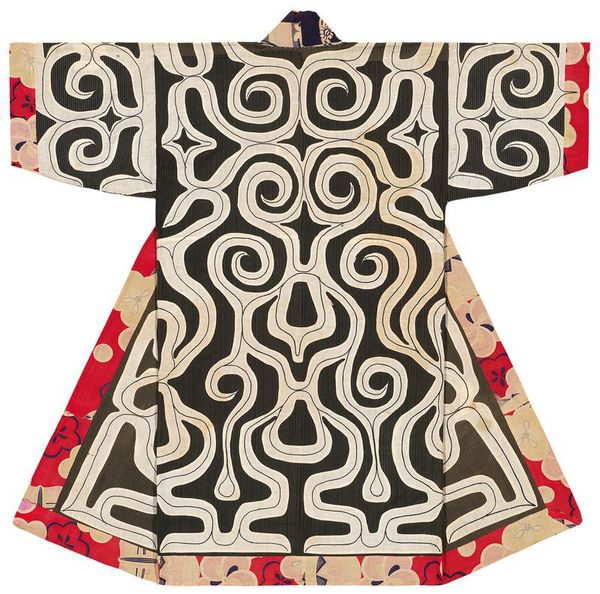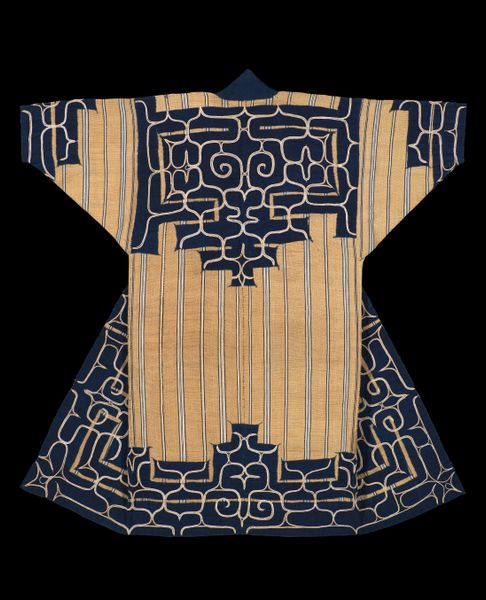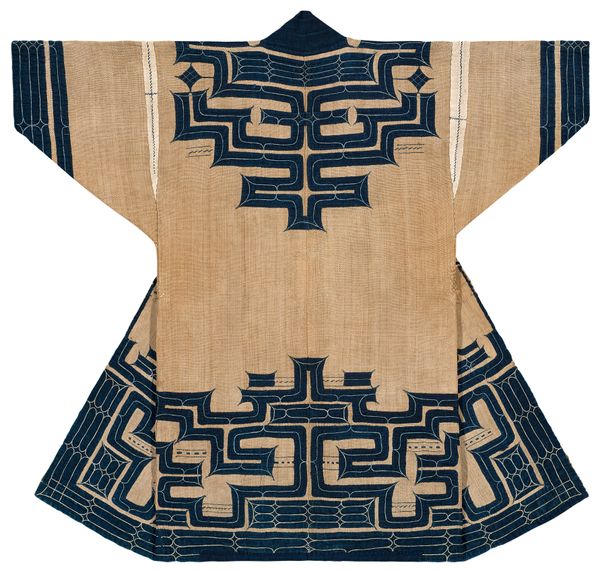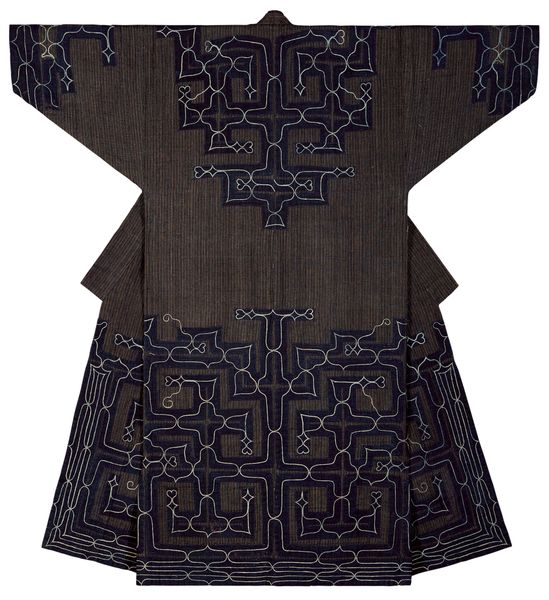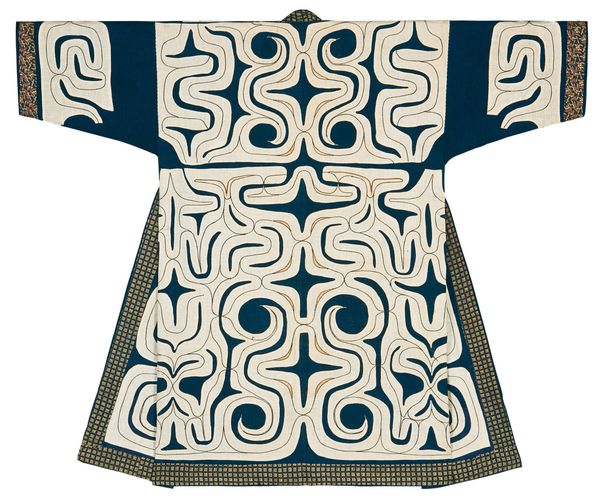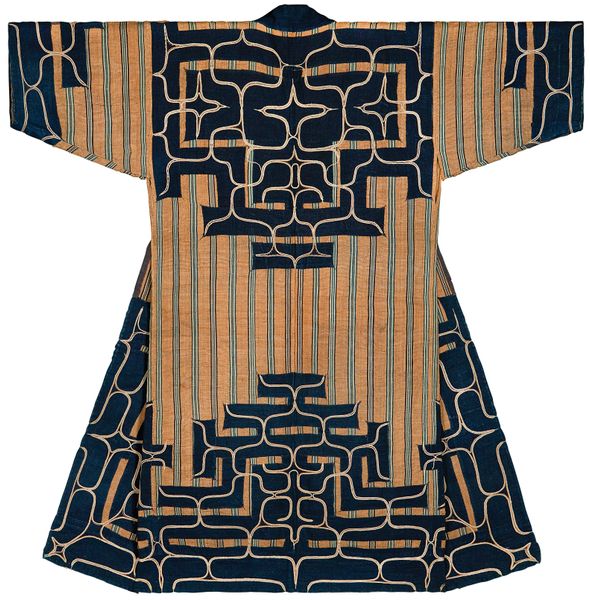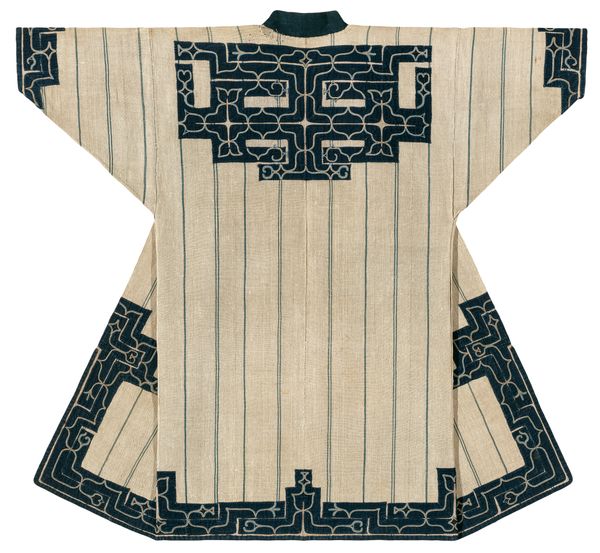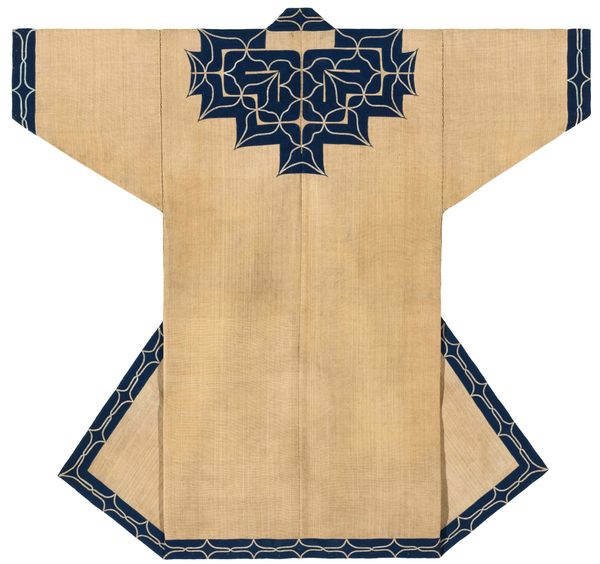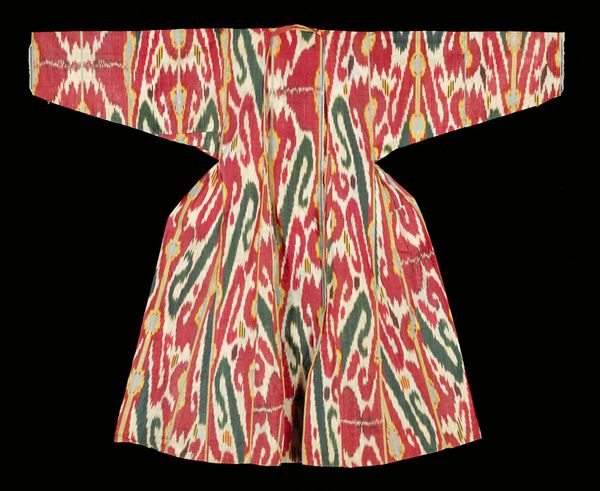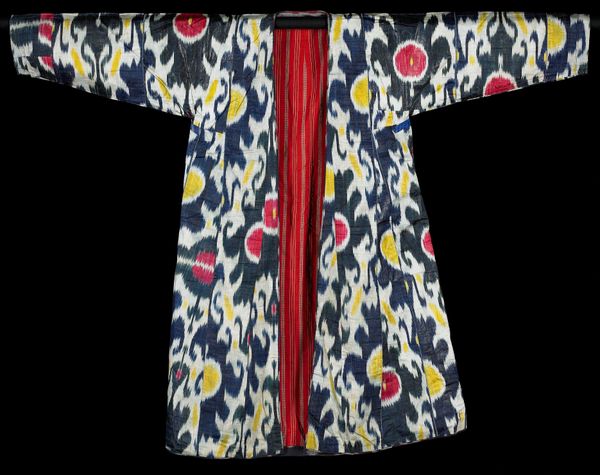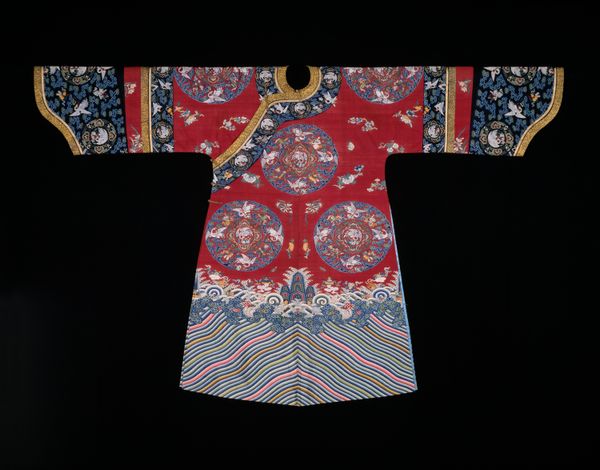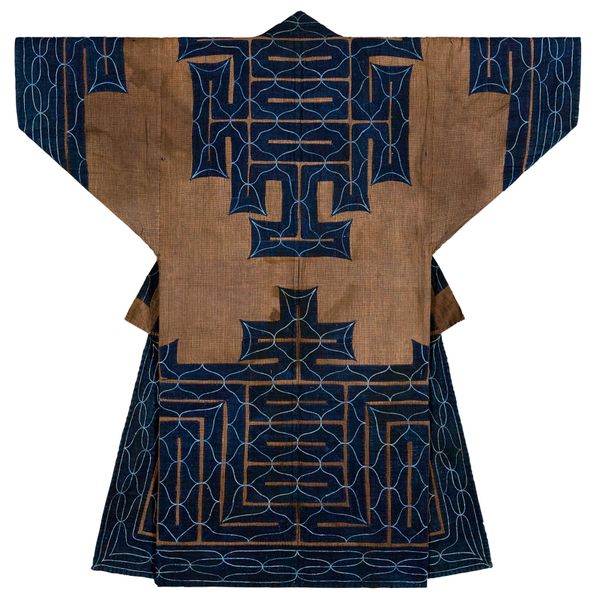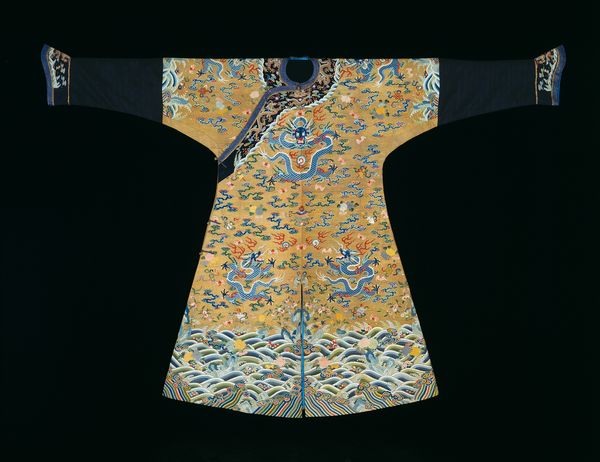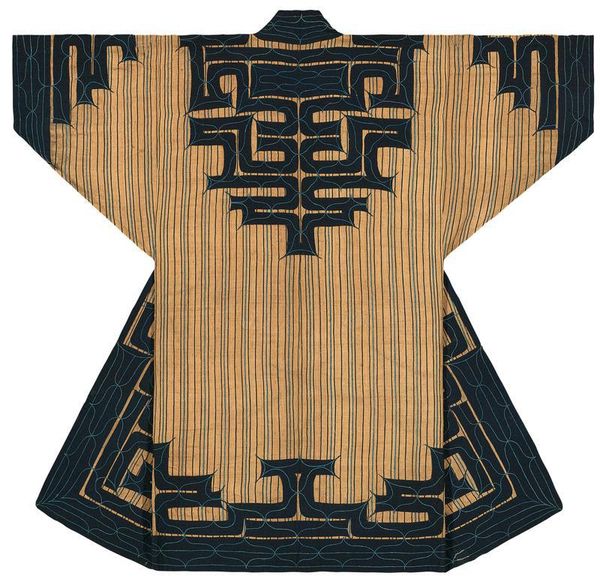
fibre-art, weaving, textile
#
pattern heavy
#
fibre-art
#
pattern
#
weaving
#
textile
#
fashion and textile design
#
pattern design
#
repetitive shape and pattern
#
repetition of pattern
#
regular pattern
#
pattern repetition
#
textile design
#
decorative-art
#
imprinted textile
#
layered pattern
Dimensions: 51 × 49 in. (129.54 × 124.46 cm) (overall)
Copyright: Public Domain
This vibrantly patterned textile, titled "Red," is an anonymous work of unknown date, held here at the Minneapolis Institute of Art. Consider its bold color palette and the elaborate symbolic patterns that adorn its surface. These motifs are not merely decorative. They carry complex cultural narratives and identities. Garments like this were often central to ritual practices, serving as a visual language that communicated status, lineage, and spiritual beliefs. Reflect on the hands that crafted this textile. In many cultures, weaving and embroidery are practices deeply intertwined with women’s labor and creativity. What stories of skill, tradition, and perhaps even resistance are woven into the very fabric of this piece? How does it feel to connect with this anonymous creator across time and space? "Red" is more than a beautiful object; it is a testament to the power of textiles as a form of cultural expression and personal identity.
Comments
minneapolisinstituteofart about 2 years ago
⋮
Kaparamip are robes made of cotton decorated with a large number of white appliqués in cutout patterns. In the early 17th century, merchants brought cotton cloth to the Ainu, who employed it as a thinner, lighter alternative to traditional materials. Cotton offered Ainu women new aesthetic opportunities, yielding patterns that were more fluid and organic than those found on other types of robes. In both kaparamip shown here, the pieces of white cotton are stitched together to form one large appliqué that covers the entire garment. The sleeve openings and the edges are embellished with pieces of red-dyed cotton, intended to ward off spirits.
Join the conversation
Join millions of artists and users on Artera today and experience the ultimate creative platform.
